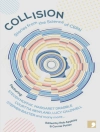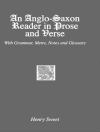There are many writers of science fiction, horror, strange tales and fantasy fiction. But if there is a king of this bizarre little corner of the literary world, it is the one-and-only H.P. Lovecraft.
For decades, Lovecraft has been hailed as the first name in strange, disturbing, grisly and unsettling fiction. His tales of odd creatures, powerful gods and things that go bump in the night have been giving readers nightmares since he first began producing fiction in the early 20th century.
Collected here are over thirty of his strangest and most original short tales of monsters, madness and mayhem. They are presented here as never before, in their original and unabridged format.
O autorze
Howard Phillips Lovecraft (1890-1937) was an American writer of strange, graphic and bizarrely imaginative fantasy and science fiction stories. Born into a prosperous family in Provincetown, Rhode Island, Lovecraft and his family suffered a series of tragedies – including the institutionalization and death of his father – that forced Lovecraft and his mother to move in with his maternal grandparents and rely on them for financial support. Lovecraft’s education was spotty, but he evinced a strong attraction to literature. He began writing early – the first story in this volume – 'The Beast in the Cave’ – was written when Lovecraft was fourteen – and showed a strong interest in the sciences as well, including anatomy, chemistry and astronomy. He was a determined and persistent letter-writer, often penning angry screeds to various magazines that contained strong criticisms of the contributing authors (who often feuded with him in print). His notoriety from these efforts would eventually lead Lovecraft to become chairman of the United Amateur Press Association and encouraged him to write more fiction himself. Lovecraft began life as a traditional conservative and was an avowed racist early in his career. But the Great Depression turned him into a socialist who was so far left in his political beliefs that he viewed Franklin Roosevelt as insufficiently progressive. Following the death of his mother in 1919 (she suffered from various mental illnesses), Lovecraft began churning out short fiction in earnest, forming a long association with the magazine Weird Stories. He never enjoyed any real financial success for his writing during his lifetime, however, and died in relative obscurity of cancer in 1937. His work was critically re-examined during the 1970’s and he has since been celebrated as one of the most imaginative and innovative science fiction writers in history.



![Pokrywa Bernadette Andrea: Grace Norton [Gethin] and Frances (Freke) Norton Pokrywa Bernadette Andrea: Grace Norton [Gethin] and Frances (Freke) Norton](https://static.worldofdigitals.com/thumb_webp/264/9781351932264.webp)








